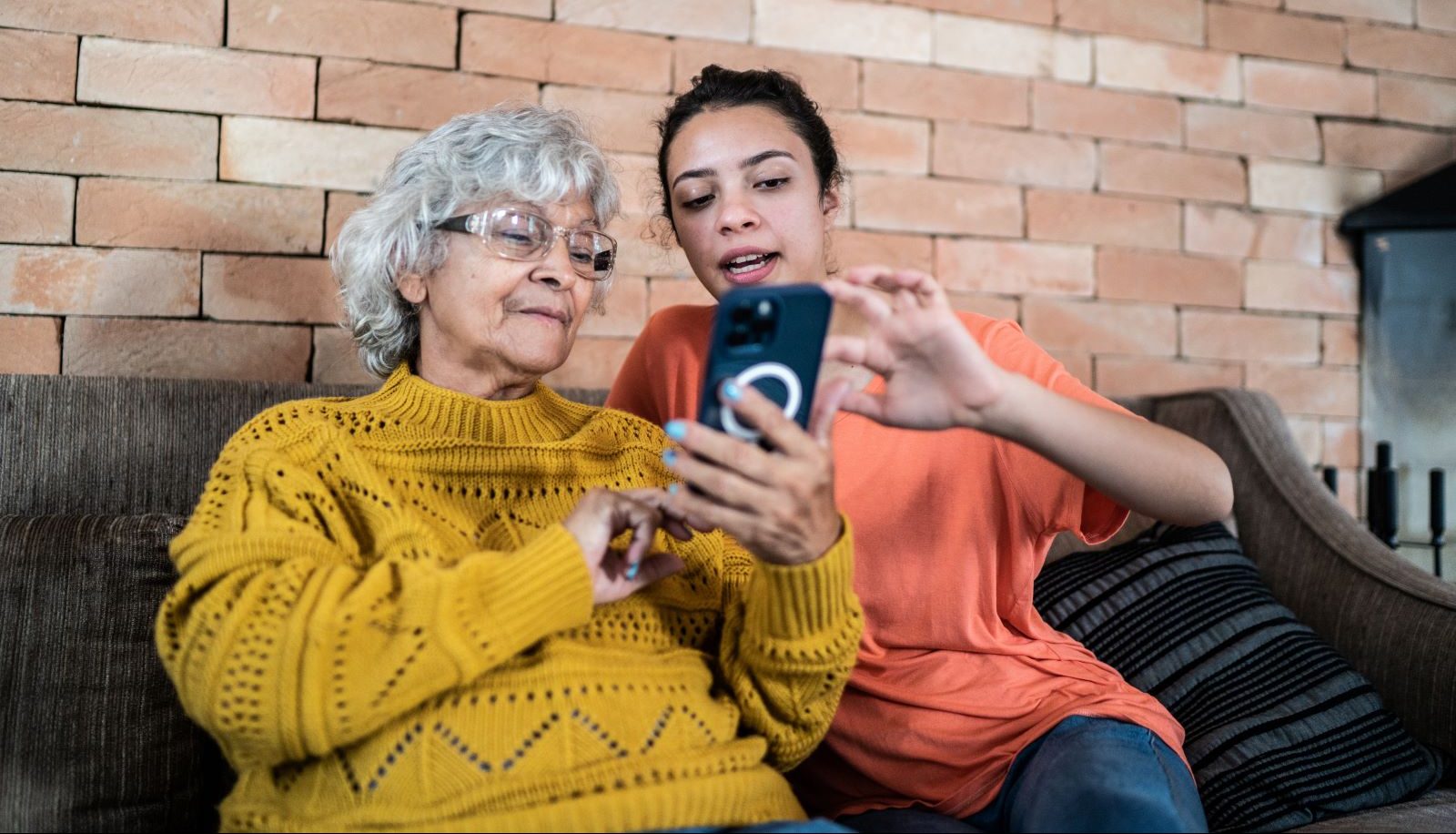<< Back
4 Ways Seniors Can Benefit From Social Media

July 18, 2023
Social media has always been a hit with younger generations, but it’s starting to skewing much older as more seniors are buying into its usefulness and entertainment factor.
But does social media also offer a way to combat social isolation?
“Seniors can protect themselves from social isolation by involvement in community activities of all kinds, but social media can also play a positive role,” says Paul Weigle, MD, a psychiatrist at Natchaug Hospital, part of the Hartford HealthCare Behavioral Health Network.
Social isolation comes with health risks.
Social isolation poses a threat to health and happiness, especially among seniors.
Loneliness has been shown to increase the risk of:
- Dementia
- Heart disease
- Stroke
- Depression
- Anxiety
- Death from all causes, especially suicide
4 ways going digital can change your life.
Social media can help:
- Reduce isolation and create a sense of belonging. Social media allows you to connect with others as well as tap into other worlds they hadn’t imagined, including connecting with younger generations.
- Keep you in touch with others. Looking for your friend you lost touch with years back? Or even discover a long lost relative. Social media can help you find and keep in touch with the people you miss.
- Stay up to date. You may find it hard to travel or join spontaneously activities with friends and family but social media allows you to connect in the palm of your hand.
- Entertainment. Need a laugh or cry, a new recipe or even breaking news? Social media has that too. Make sure, though, to always do your research into companies and ads as social media may not always be accurate.
> Related: How to Keep Seniors Safe From Phone Scams? Start With These 3 Guidelines
Start your social media adventure.
If you’re looking for a place to start your social media journey, there are plenty of options.
Facebook or Instagram can offer a way to connect with relatives and friends, and share photos, while apps like Skype or WhatsApp allow for video chat or instant messaging.
“When I have a question about social media, I often find it best to ask my teenage daughter. Children and grandchildren can help us set up a social media profile and share practical experience, advice and tips on how best to engage,” he says.
Social media and internet safety is a priority.
When using social media, be sure to always protect yourself, and limit sharing personal information to avoid the risk of scams. Excessive screen time can become problematic, so it’s best to balance it with other activities.
“The healthiest use of social media is to coordinate in-person social encounters. Overreliance on social media interactions for socialization can be unhealthy and predispose people to depression and social anxiety,” says Dr. Weigle.
“Social media should enhance our in-person relationships, not replace them.”